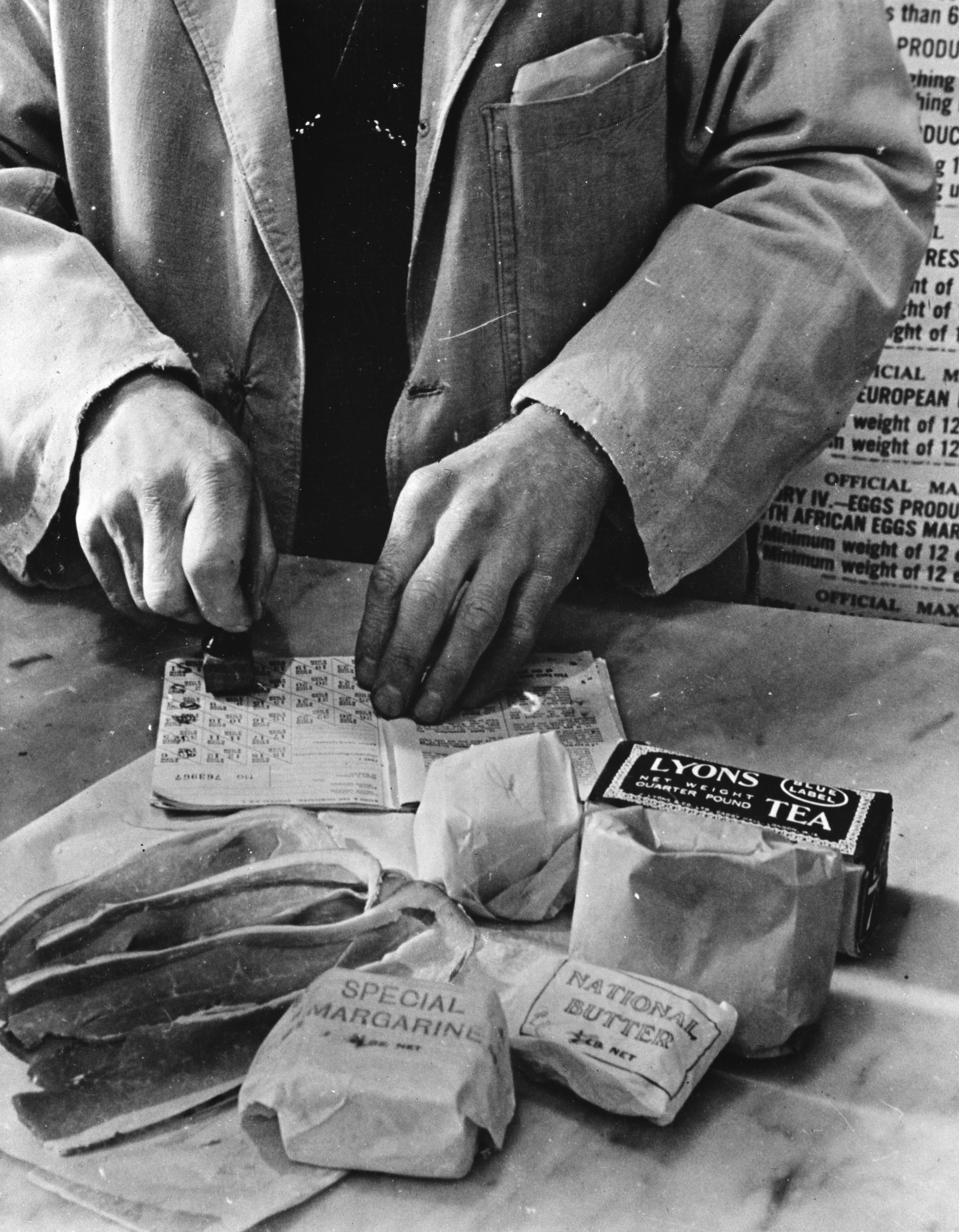Rationing
Rationing was introduced to Britain in World War Two. The war meant that the government had to reduce the amount of food imported from abroad, so rationing was brought in to ensure that everybody had enough food to eat. From early 1940, all families were issued with ration books. Each person was allotted a certain quantity of food, which they would then buy from their chosen shops.
Before the war, Britain relied on imports for a lot of food. However, German submarines made merchant shipping very dangerous and difficult. Rationing was introduced for all in order to ensure that everybody - regardless of their wealth of social standing - got a fair amount of food.
Rationing was especially important in big cities, where people had less opportunity to grow their food. People were encouraged to be frugal and not to waste anything.
Every family had to register with their local shop, then the shopkeeper was issued with only enough food to sell to those registered with the shop.

Rationing worked by each family having to register with a shop and the shopkeeper was issued with enough food for the people on his list only.
Bacon, butter and sugar were rationed in January 1940, shortly followed by meat, cheese, fresh eggs, jam, tea, milk and cereal.
Under the National Milk Scheme, young children were entitled to one pint of milk a day. Pregnant women with an income of less than 40 shillings a week also got free milk. Children also got extra orange juice.
People with gardens were encouraged to grow their own produce. The Dig for Victory campaign encouraged people to turn gardens, parks and sports pitches into allotments. The government was aware that if the Germans launched a sea blockade, it would need to be as self-sufficient as possible.
Wartime recipes attempted to make the most of these ingredients. Dried eggs were even substituted for real eggs. Restrictions were gradually lifted three years after war had ended, starting with flour on 25 July 1948, followed by clothes on 15 March 1949.
In 1950 rationing ended for canned and dried fruit, chocolate biscuits, treacle, syrup, jellies and mincemeat.
All rationing came to an end in 1954.
See also: The Years of Rationing
MLA Citation/Reference
"Rationing". HistoryLearning.com. 2026. Web.
